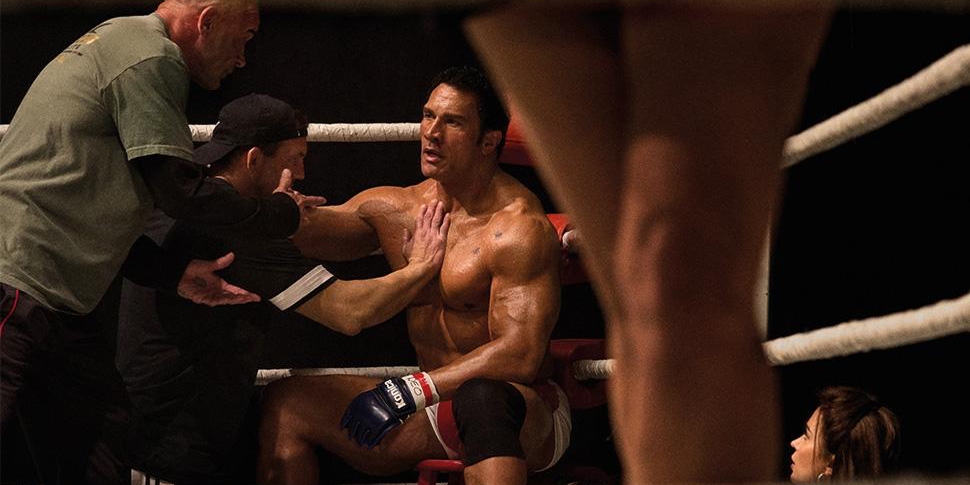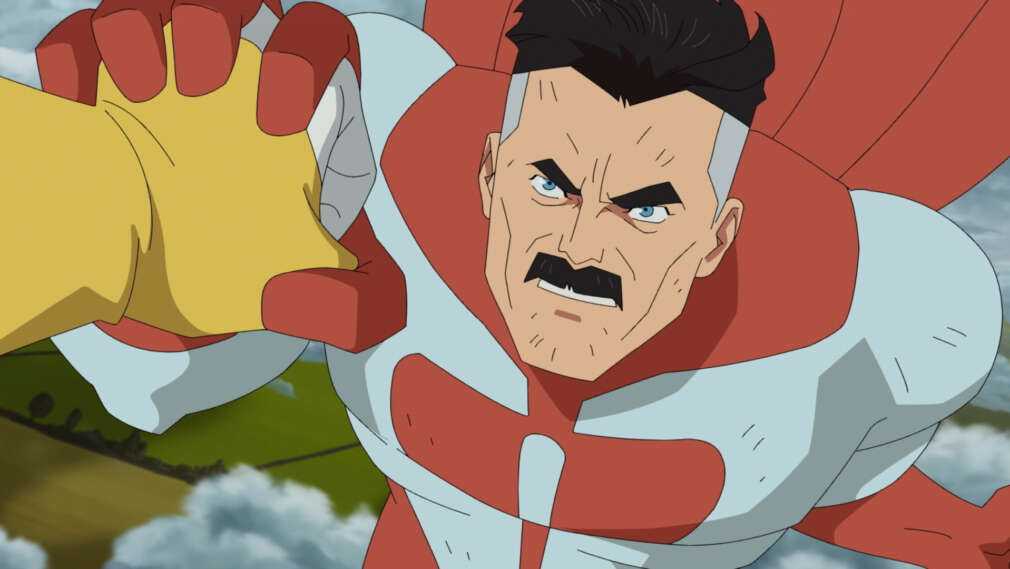Its star shines, but The Smashing Machine finds itself stuck between a rock and a hard place.
Half documentary, half family drama, all fever dream – The Smashing Machine is not the film many might expect. Based on the 2002 documentary of the same name, Benny Safdie’s version chooses not to retell Mark Kerr’s story in the usual sports biopic fashion. Limited montages, no soaring moments of triumph, and even when you think it’s going to take the generic path of inspiration and motivation, Safdie (Good Time, Uncut Gems) pulls the rug from under you. This is a film about pain, addiction, dependency, and identity. A sports movie by way of Lost in Translation, not Warrior.
Dwayne Johnson stars as Kerr, and for the first time in a long while, the performance feels like a revelation. The shell of The Rock remains, but something in his eyes are different. Glazed, tired, and full of something gnawing and unspoken. His physicality is undeniable, but what surprises most is his restraint. Johnson holds space on screen quietly, letting the silence and sweat do the talking. It’s a performance more internalised than anything he’s done before, and that choice makes Kerr feel hauntingly real. None more so than in the film’s first hour, which depicts Mark’s trouble with opioids, with Johnson’s ability to capture the sheer vacancy of such an addiction nothing short of remarkable. As Mark’s pain disappears, so does the world around him.

But the film, like its subject, seems to wrestle with its own contradictions. The visual approach is often fascinating. Safdie’s docu-style cinematography immerses us into the late ’90s MMA world with a lived-in authenticity, but the story can’t always keep up. The tone wavers. One minute, we’re deep in a fractured relationship drama; the next, we’re in another extended fight scene that feels more obligatory than essential. The brawls are brutal and kinetic, but oddly, they drain momentum. They are meant to give us a break from Kerr’s pain, but because that pain is what the film is truly about, they sometimes feel like detours, almost like they get in the way of the better movie hiding beneath.
Emily Blunt once again does a lot with a little. Her role as Dawn, Kerr’s partner, leans early on the familiar “tortured spouse” framework, but in the film’s final stretch, she’s finally allowed to show some fire. Much like her turn in Oppenheimer, it’s a testament to what Blunt can do – even when the script offers limited real estate. The same can be said for Ryan Bader’s Mark Coleman. Bader, himself an MMA champion turned actor, feels extremely real here, and his turn as Kerr’s best friend creates another thread of the story you might wish was dug into further.
Where the film does find something new is in its quieter observations. What does it mean for someone who never loses to suddenly be defined by losing? That theme hums in the background throughout. There’s also a real weight to the question at the heart of Kerr and Dawn’s unravelling: what if love isn’t enough? What if the person you love might not be good for you? These are big, messy questions, and to its credit, the film doesn’t try to answer them neatly.
Verdict
The Smashing Machine is an undeniably ambitious project, and in moments, an affecting one. It’s also a bit of a tangle, uncertain about what it wants to be and oddly structured, with scenes that feel cut off just as they’re getting interesting. You don’t realise you’re being pulled into it until suddenly, you are. It sneaks up on you like a quick right hand. But when the credits roll, you’re left wondering what version of this story might have landed harder with a clearer sense of focus. The machine hits, just maybe not quite where it was aiming for.



